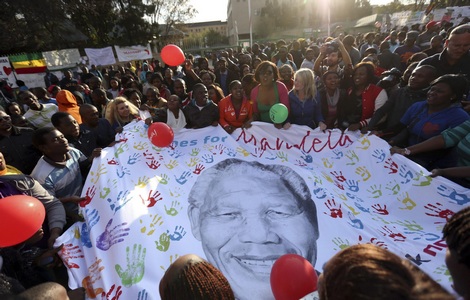

CHANGING ATTITUDES, SOCIAL MEDIA, RELIGION
Opposition to legal recognition or marriage of gays was highest in Hungary, South Korea, Poland and Japan, where 37 percent of people said they were unsure about how they felt.
"What is common to Hungary, South Korea and Poland is that by and large they are the countries that have the lowest percentage of people who report having a relative, a colleague, or a friend who is gay, lesbian, bisexual or transgender," said Boyon.
Three out of 10 people questioned said their attitude towards gay marriage had changed in the past five years, although they did not say how. Support for same-sex unions was highest among adults who had a relative, friend or colleague who is gay, lesbian, bisexual or transgender (LGBT).
Nearly 46 percent of people said they know someone who is LGBT. In Spain and Norway the number rose to 65 percent. But in South Korea and Japan the number dropped to 3 percent and 5 percent respectively.
"Either there is no exposure or there is just too much embarrassment to admit it," said Boyon. "It is likely there is still a stigma attached to the issue in those countries."
Social media and religion also had an impact on attitudes about gay marriage. People who are active on social media were more likely to support same-sex couples than those who were not online as much, according to the poll.
Twenty-seven percent of people who identify themselves with a religion were more likely to support some form of legal status for gay couples, the poll showed, while 17 preferred no recognition.
"Poland has the most opposition to adoption to same-sex couples and it is probably one of the most religious countries in the survey," Boyon said.
Ipsos questioned about 1,000 people in each country in the online survey except in Argentina, Hungary, Norway, Poland, South Korea and Sweden, where 500 residents were questioned.
The poll of 1,000 people has a margin of error of plus or minus 3.5 percentage points while one of 500 has a margin of 5 percentage points.







